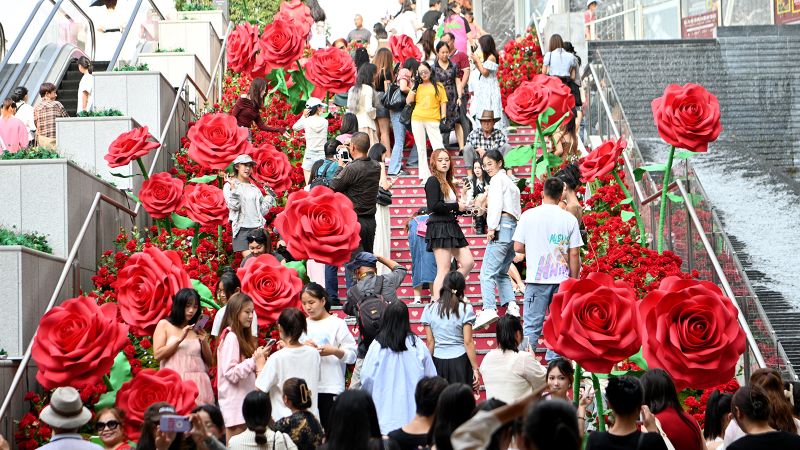The Qixi Festival in China, an ancient holiday celebrating love and loyalty, used to be a time of extravagant gift-giving and celebrations during the country’s economic boom. However, this year’s festival saw a noticeable decline in spending and festive spirit, with people blaming a sluggish economy and tough job market for their lack of participation. Social media posts highlighted the emptiness of the festival compared to previous years, with some businesses also reporting a lack of customers and unsold roses.
The drop in spending during the Qixi Festival aligns with a overall trend of weak consumer consumption in China over the past two years. Market experts have noted that consumer confidence in China is at record lows, impacting global businesses and the government’s efforts to promote marriage as a solution to the country’s falling birth rates and aging population. A shrinking population is expected to be a drag on economic growth, with fewer couples getting married this year compared to a decade ago.
The general pessimism in China is reflected in trade and economic data, with imports of jewellery-grade diamonds declining and foreign direct investment into the country dropping significantly. This indicates ongoing economic challenges in China that have delayed the expected recovery from a sharp decline in previous years. The lackluster economic conditions have also been reflected in the feedback from global businesses, with companies like L’Oreal and Volkswagen highlighting weak demand in China as a key concern.
The historical significance of the Qixi Festival as a day for mythical lovers Niulang and Zhinu to meet on a celestial bridge has been overshadowed by the current economic realities in China. Global CEO’s are no longer able to rely on China as a commercial stalwart due to low consumer confidence, driven by factors such as a weak job market and real estate woes. Companies like L’Oreal and WPP have reported significant revenue declines in China, with expectations that the challenging economic conditions will persist in the second half of the year.
The outlook for China’s economy remains uncertain, with companies like Volkswagen and Mercedes expressing concerns over when consumer confidence will return. The impact of the Covid-19 pandemic, alongside ongoing economic challenges, has contributed to a lack of consumer spending and confidence in China. This has led to a shift in the way the Qixi Festival is celebrated, with a noticeable decline in extravagant gift-giving and celebrations compared to previous years. The future economic prospects of China will depend on its ability to address the underlying issues contributing to weak consumer confidence and spending.


